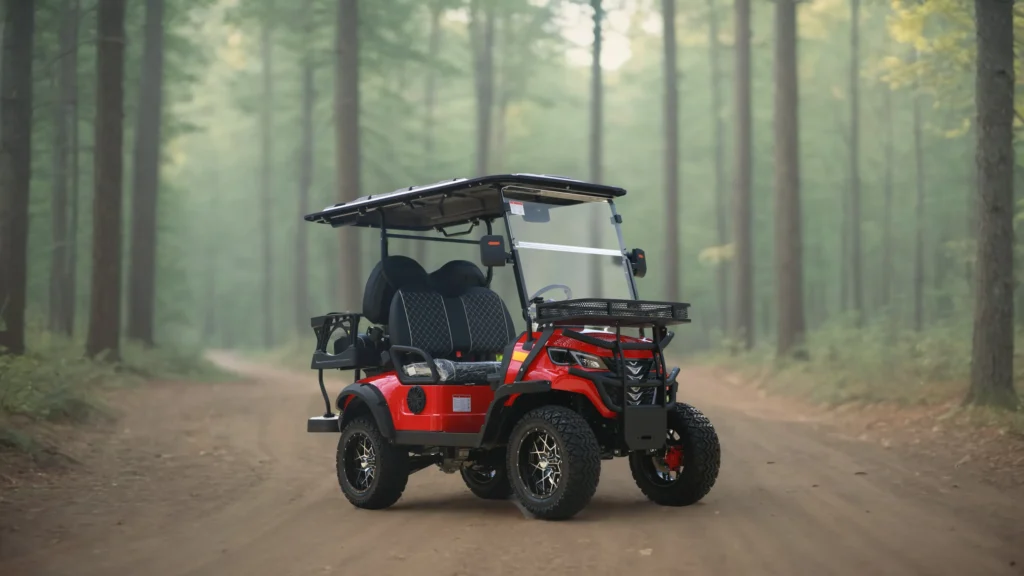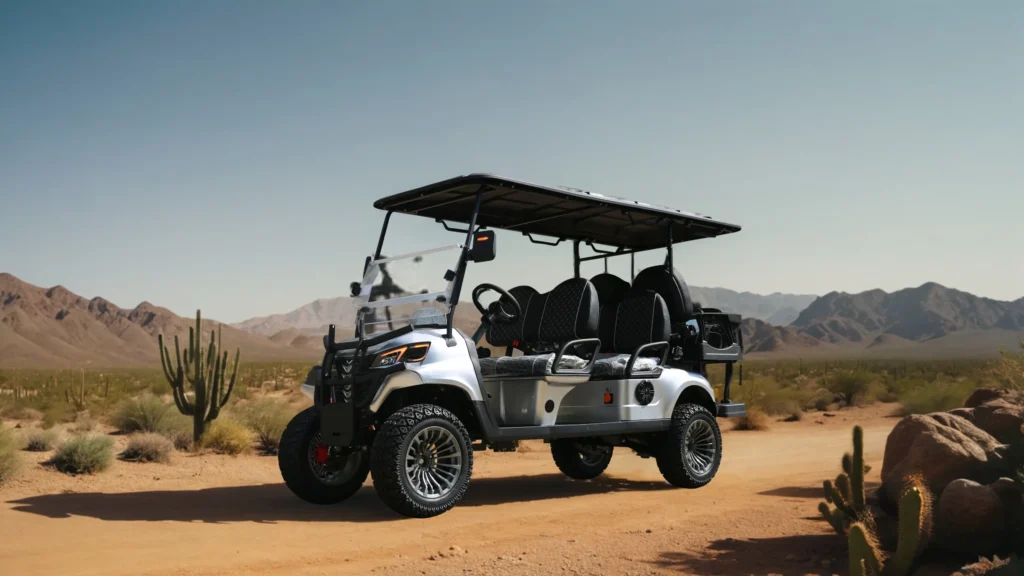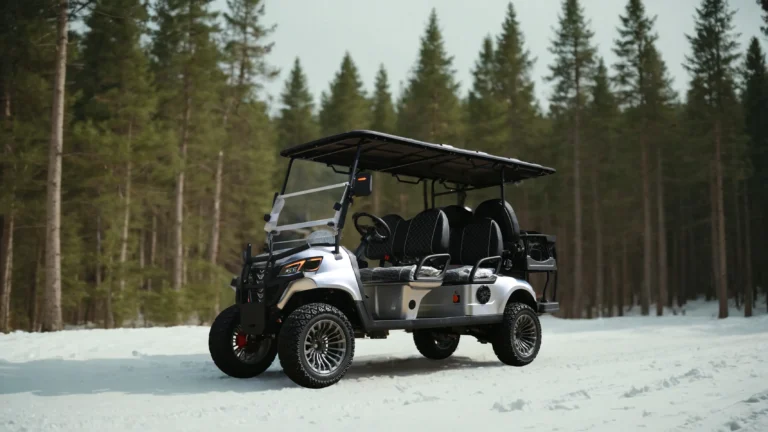Confused about whether you need to register your electric golf cart in California? Misunderstanding the rules could lead to fines or legal issues. Let’s clarify the registration requirements to keep you compliant.
In California, certain electric golf carts require registration depending on their speed, intended use, and where they are operated. Golf carts used on public roads or exceeding specific speed limits generally must be registered with the Department of Motor Vehicles (DMV).

Read on to learn the specifics and ensure your use of an electric golf cart is legal in California.
When Is Registration Required for Electric Golf Carts in California?
Many electric golf cart owners are unsure about the registration requirements because not all electric golf carts are treated the same under California law. This lack of clarity can lead to unintentional violations, which can result in fines or legal complications. Knowing when you need to register your electric golf cart will help you avoid these problems and ensure you can use your golf cart without worry.
In California, if you use your electric golf cart on public roads or if it can exceed speeds of 25 mph, you generally need to register it with the DMV.
California law makes a distinction between a standard golf cart and a low-speed vehicle (LSV). If your electric golf cart has been modified or manufactured to travel at speeds between 20 and 25 mph, it may be considered an LSV. LSVs need to be registered, insured, and meet specific safety standards, including having proper lighting and reflectors. On the other hand, if you only use your golf cart on private property or on a golf course, you typically do not need to register it. Understanding these distinctions is critical to staying legal and safe when using your electric golf cart.

Can You Drive an Electric Golf Cart on the Road in California?
Many people want to drive their electric golf carts on public roads, but there are strict rules about where and when you can do so. Ignoring these rules can lead to fines or accidents due to inadequate equipment on your golf cart. Understanding when and where you can legally drive your golf cart will help you stay safe and legal.
If your electric golf cart meets the definition of “street-legal“, meaning it has the proper lighting and speed limitations, you can drive it on certain roads in California.
Under the California Vehicle Code, you can drive a golf cart on roads with a speed limit of 25 mph or less if your golf cart can’t go faster than 25 mph. Your golf cart must have the necessary safety equipment, including headlights, turn signals, brake lights, mirrors, and a windshield. You also need to have a valid driver’s license as well as proof of insurance coverage for driving on public roads. Driving a non-street-legal golf cart on public roads not only puts you at risk of a ticket but also endangers the safety of everyone else on the road.

What Makes a Golf Cart Street Legal in California?
To drive your golf cart on the street, you need to make sure it meets certain safety and performance standards. If you don’t meet these standards, your golf cart is not legal for street use.
To be street legal, your golf cart must have lights, mirrors, seat belts and speed controls. You must also have the proper insurance and registration.
To be street legal, your golf cart must have headlights, taillights, turn signals, rearview mirrors, a windshield, seat belts, and a horn. It cannot go faster than 25 mph. If it’s classified as a low-speed vehicle (LSV), it must meet federal safety standards. You must register it with the DMV and carry minimum liability insurance as mandated by state law. Meeting these requirements ensures that your golf cart is safe for you and others when you drive it on public roads.

Is Golf Cart Insurance Required in California?
Many people don’t think about insurance but it’s a critical part of being legal. If you don’t have insurance, you could be in for a world of hurt if you’re in an accident.
In California, if you drive your electric golf cart on public roads or if it is classified as an LSV, you need insurance to cover you in case of an accident.
If your golf cart is registered and street legal as defined by state regulations, you need to carry the state’s minimum liability insurance. This insurance covers any damage or injury you cause in an accident. Even if you don’t have to have insurance for private property use, it’s advisable to have it for protection against potential accidents or damage.

Does a Golf Cart Have a Title in California?
Understanding the role of vehicle ownership documents in California can help you navigate the registration process more easily. Not having the right documents can cause problems when you try to register your golf cart.
Some electric golf carts require a title and registration to prove ownership, especially if they are classified as low-speed vehicles.
If your golf cart needs to be registered, the DMV will issue a certificate of title when you complete the registration process. This title is your legal proof of ownership. You’ll need to provide necessary documents such as a bill of sale, manufacturer’s certificate of origin, and any other required forms. Having a title is important if you ever decide to sell the vehicle or need insurance coverage.

What Vehicles Are Exempt from Registration in California?
Not all vehicles require registration in California. Understanding which vehicles are exempt is essential to avoid unnecessary registration and legal issues.
Electric golf carts that operate at speeds less than 25 mph and are used exclusively within closed communities or on private property are typically exempt from registration in California.
Vehicles that do not travel on public roads and remain on private property—such as those used within gated communities or private estates—generally do not need to be registered. These golf carts must not exceed 15 mph and should not cross public streets. It is important to note that once you drive the golf cart on public roads—even for a short distance—it may no longer qualify for exemption and will need to comply with all street-legal requirements.

How to Register an Electric Golf Cart in California?
Once you determine that you need to register your electric golf cart, understanding the process can help avoid unnecessary headaches. Not knowing the process can lead to delays and incomplete registrations.
Registering your electric golf cart typically involves providing vehicle information, paying fees, and possibly having an in-person inspection at the DMV.
To register your electric golf cart, visit your local DMV office with required documentation such as a bill of sale, proof of ownership documents like previous titles or registrations (if applicable), and completed application forms. You will need to pay applicable registration fees and may need an inspection to ensure compliance with safety standards set by state regulations. Once registered successfully, you’ll receive license plates and a registration card which should be kept handy while operating the vehicle.

Are There Penalties for Unregistered Electric Golf Carts?
Operating an unregistered electric golf cart when required can lead to legal consequences. Not knowing the penalties does not exempt one from them.
Using an unregistered vehicle when required can result in fines and prohibition from road use in California.
Penalties for operating an unregistered electric golf cart can include fines, impoundment of the vehicle, and points added to your driver’s license record. Repeat offenses may result in increased penalties along with potential legal issues. Additionally, operating without proper registration leaves one financially exposed in case of accidents due to lack of insurance coverage mandated by law. It is crucial to comply with all registration requirements to avoid unnecessary risks.
In summary, understanding the registration requirements for electric golf carts in California is essential for compliance with local laws regarding usage and insurance coverage before purchasing or using such vehicles. This version includes additional relevant links that enhance credibility while ensuring clarity throughout the article.




